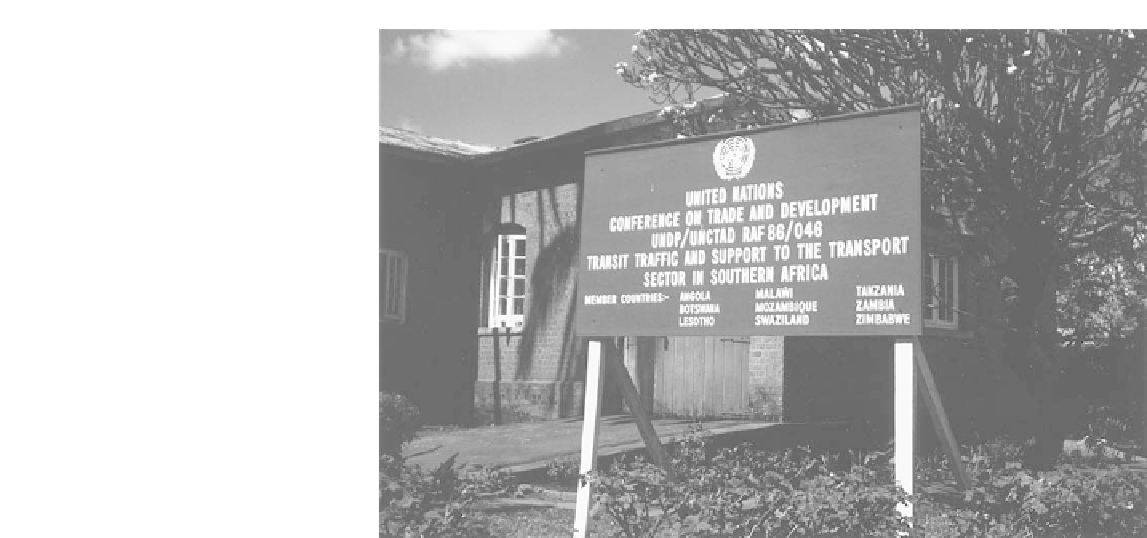Travel Reference
In-Depth Information
The UNWTO works with the UNDP, which
finances tourism planning projects and infrastructures, such as
projects to improve transportation in southern Africa.
PhotocourtesyoftheUnitedNations.
s
most important contributions. Its work here has set international standards for tourism measurement
and reporting, measured the impact of tourism on national economies, produced forecasts, examined
trends, and made the results available in publications.
Human resource development is another UNWTO goal. UNWTO sets standards for tourism
education. The UNWTO Education Council
UNWTO is well known for its statistics and market research. Research has been one of UNWTO
'
—
made up of leading tourism education, training, and
research institutions
drives the education program of work, which includes the accreditation program
for tourism education institutions (TedQual) and the Graduate Tourism Aptitude Test (GTAT). These
are examples of UNWTO
—
s efforts to encourage standardization of curricula and to make degrees in
tourism more internationally comparable. UNWTO also offers seminars, distance learning courses,
and practicum courses for tourism of
cials from member countries.
UNWTO attempts to facilitate world travel through elimination or reduction of governmental
measures for international travel, as well as standardization of requirements for passports, visas, and
so forth. It works to improve the quality of tourism through trade liberalization, access for travelers
with disabilities, safety and security, and technical standards. UNWTO also works to improve the
promotional efforts of member governments through effective media relations and serves as a
clearinghouse for international tourism information.
In addition to these global activities, UNWTO engages in regional activities. Each region of the
world
'
—
Africa, the Americas, East Asia and the Paci
c, Europe, the Middle East, and South Asia
—
receives
special attention from that region
s UNWTO representative. The representatives meet with top tourism
of
cials from each of the countries in their region to analyze problems and help seek solutions, act as a
liaison between tourism authorities and the UNDP to create speci
c development projects, organize
national seminars of topics of particular relevance to an individual country, such as tourism promotion in
Mexico or ecotourism in Kyrgyzstan, and hold regional conferences on problems that are shared by many
countries so that members can exchange experiences and work toward common goals, such as safety
and security in Eastern Europe or aviation and tourism policy in the Caribbean.
Key projects that UNWTO is currently working on are poverty alleviation and elimination through
sustainable tourism, protecting children from sexual exploitation in tourism, crisis management,
ecotourism, and safety and security. Visit the UNWTO Web site at
www.unwto.org
.
'








Search WWH ::

Custom Search